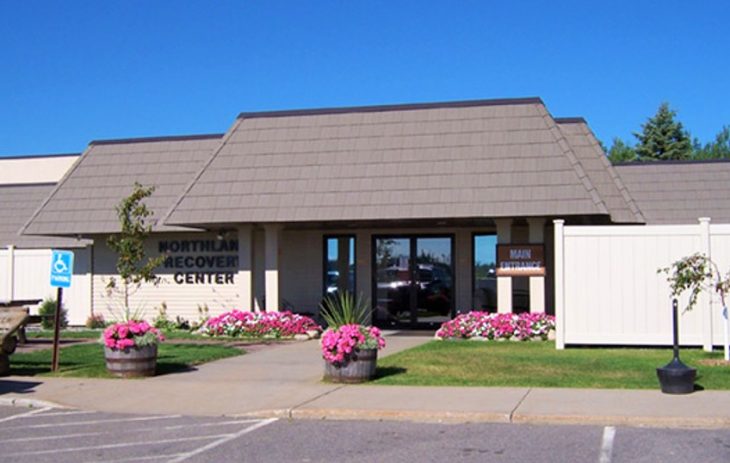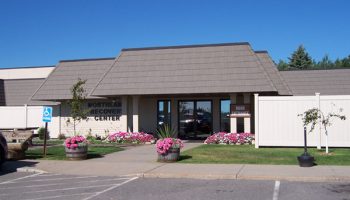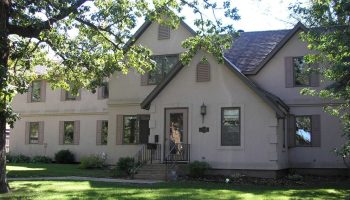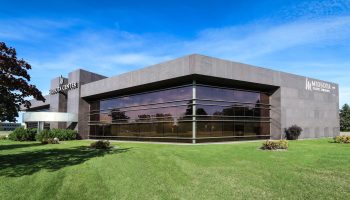About Northland Recovery Center
Northland Recovery Center is an inpatient and outpatient rehab organization in Grand Rapids, Minnesota. Clients have access to services such as detoxification and aftercare. The staff can also provide treatment for individuals who have co-occurring mental health issues.
Trained Medical and Counseling Staff
Detox will be provided to you by a trained team of medical and counseling professionals. They are staffed with certified nurse practitioners, licensed therapists, and psychiatrists. Detox is available for men and women, but the residential beds are reserved for men only.
The nurse practitioners on staff can monitor you to make sure you avoid complications and your symptoms are managed. They may administer medications that can reduce your cravings and minimize your discomfort. The licensed therapist that will work with you can provide emotional support as you work through mental health symptoms such as anxiety.
They may also begin helping you uncover the causes of your addiction and identifying your triggers. Mental health issues can sometimes be the main reason for substance use, and talk therapy may not be enough to treat your condition. Psychiatrists can prescribe medications along with 12 Steps to help manage your mental health symptoms to reduce your chances of relapse.
Maintaining Sobriety in Grand Rapids
Finding new activities to do in Grand Rapids will be a helpful part of maintaining your sobriety. A few places in town you can visit include the Gerald R. Ford Presidential Center and Blandford Nature Center.
As you’re going through recovery, your family can also begin receiving support. The family education and counseling service can help you and your family overcome issues caused by your addiction and strengthen the relationship. Your family can learn ways to help you in your recovery so they can be a positive support system.
Levels of Care
-
Inpatient
Inpatient and residential programs provide round-the-clock medical and emotional support as you live at the treatment facility. This level of care may be recommended if you have severe addictions or mental health conditions since it removes outside distractions and allows you to focus solely on therapy.
-
Outpatient
In outpatient therapy, you’ll attend therapy sessions several times each week while living at home. This is ideal if you have a strong support system and a lower risk of relapse. Outpatient treatment offers flexibility to maintain work, school or family obligations.
-
Aftercare
Aftercare programs provide ongoing support after you complete a rehab program. They may include several components to help you maintain sobriety including therapy, community support groups and relapse prevention strategies. This gives you a network of resources as you reintegrate into your daily life.
-
Dual Diagnosis
Dual diagnosis programs address substance use disorders and co-occurring mental health conditions simultaneously. This integrated approach to care improves the likelihood of long term recovery and stability by addressing the root causes of addiction.
Detox Service Setting
-
Inpatient Detox
Inpatient detox occurs in a dedicated treatment facility. You’ll live there around the clock and receive intensive medical support and supervision to help manage your withdrawal symptoms. It is suitable for individuals with moderate to severe addictions as it ensures a stable detox environment.
-
Outpatient Detox
Outpatient detox gives you access to medically supervised withdrawal services while still allowing you to live at home. You’ll attend a clinic for treatment and monitoring. This flexible option is suitable for those with mild to moderate withdrawal symptoms who have strong support systems.
Programs
-
Adult (18+)
Adult programs address the substance use and life challenges specific to adults. Therapists can deliver sessions in individual, group and family settings. Services often include job support and life skills training in a structured environment.
-
Alcohol Detox
Alcohol detox programs offer medical support to help individuals withdraw safely from alcohol. Your care team may use medications to ease your symptoms and provide medical monitoring to address complications.
-
Cognitive Behavioral Therapy
Cognitive behavioral therapy focuses on changing harmful thought patterns and behaviors associated with addiction. You’ll learn healthier coping mechanisms by identifying and replacing negative thoughts. This improves your emotional resilience and decreases your relapse potential.
-
LGBTQ Friendly
LGBTQ friendly programs create an inclusive and affirming space for recovery. Treatment is sensitive to issues like discrimination and stigma. You’ll receive support and therapy that respects and acknowledges your unique experiences.
-
Men
Men's programs address substance use while also considering the social pressures, family roles and mental health concerns that are specific to men. You’ll learn healthy coping mechanisms as you build emotional resilience and develop communication skills.
-
Opioid Detox
Opioid detox uses medications to ease severe withdrawal symptoms. It also includes medical supervision to help you manage potential complications. These services allow you to stabilize and begin a recovery plan.
-
Women
Women's programs offer a safe and supportive space to focus on gender specific issues such as trauma, family roles and mental health conditions. Therapists tailor the sessions to address women's needs and foster empowerment in a healing and nurturing environment.
-
Young Adult (18 - 25)
Young adult programs are designed for individuals who are transitioning into adulthood. Topics of discussion typically include identity, independence and peer relationships. Providers may also offer life skills training and career support.
Payment Options
- Payment Assistance
- Medicaid
- Private Insurance
- Self Pay
Contact
1215 Southeast 7th Avenue
Grand Rapids, MN 55744





